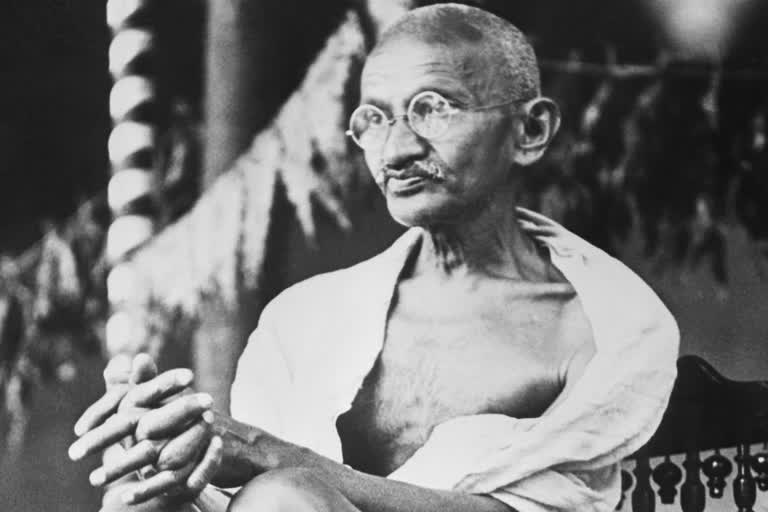Hyderabad:Mahatma Gandhi, the renowned freedom fighter and founder of the Satyagraha movement against the British Empire was also a big promoter of health and fitness. He identified regular exercise, hygiene, good habits, and natural food as the important contributing factors for a healthy living devoid of diseases.
Gandhiji firmly opined that the prevention of diseases is more important than treating it. "Living in a polluted environment, infested with parasites is equal to living together with pathogens," he often pointed out. “Phylogenetically being the most evolved species in Organic evolution, Human beings have to utilise their hands and legs," for what purpose are they provided?" he questioned. We now know that proper physical exercise is vital to stay fit rather than being sedentary in lifestyle.
We can see present-day smartphones with an inbuilt health app monitoring every step we take to record our daily activities. As it goes, destiny is different from what one aspires. At the age of 18, MK Gandhi wished to pursue a medical degree in the United Kingdom. But he was not allowed to do so by his family members as it involved handling dead bodies to study human anatomy. However, his interest in human health remained with him throughout his life. He had an interest in human anatomy, physiology, nutrition, and hygiene. At Sabarmati ashram, there used to be a human skeleton serving as a model for the inmates to know the parts of the body. Gandhiji studied extensively about the chemistry of drugs and the mechanism of their action.
Gandhi believed in strict vegetarianism and at one stage, and even practised 'vegan' diet for 7 years at a stretch, devoid of all animal products including milk. He observed that buffalo milk can be replaced by Goat milk for daily consumption and used the same after he developed severe diarrhoea with an allergy to Buffalo milk.
Gandhiji used to look after the medical treatment, food restrictions, rest and exercise during the convalescence of ailing inmates at Sevagram very closely. At Sabarmati ashram, Dr Sushila Nayar was the full-fledged doctor in-charge, but Gandhiji himself took a lot of personal care in attending to the ailing members of the Ashram. He once admitted a Sanskrit scholar ailing from leprosy, saying that he cannot avoid an inmate on grounds of health. Instead, he provided a separate lodging for the person and personally attended to the patient.
Gandhiji wrote a precise and crisp treatise on health during 1940-42, when he was imprisoned in Yerwada jail. He named it as 'Key to health'. In this, he discussed the human body, diet schedule of a healthy person and diseased individual and exercise. He reiterated the importance of walking as the best practice to stay fit. Gandhi also discussed some practices like Mudbath and Sunbath as accessories for human health. He proposed a unique point that all the five states namely Air, Earth, Fire, Water, and Aakash or Space are all vital constituents of the Human body and that they need to be integrated for the health of an individual. For example, pure drinking water, breathing exercise, food nearer to natural products which convert into fuel or energy for a living are some issues he addressed in this comprehensive book.
Early to bed and early to rise is the best policy to be followed as per Gandhi. He advocated that for the maintenance of perfect harmony in the internal milieu of the human body. Modern science points to the biological clock as the Circadian Rhythm.
Mahatma Gandhi addressed Mental health as an integral part of Human Health. In his book, a detailed discussion about the effect of practices like a vow of silence, abstinence from tobacco and alcohol and vow towards celibacy (also called Brahmacharya) for Mental health has been done. Gandhi stressed upon meditation, saying that forgiving oneself and the faults of others make one more empathetic and establish a balance between the body and mind of a human being leading to the overall well-being of the individual.
